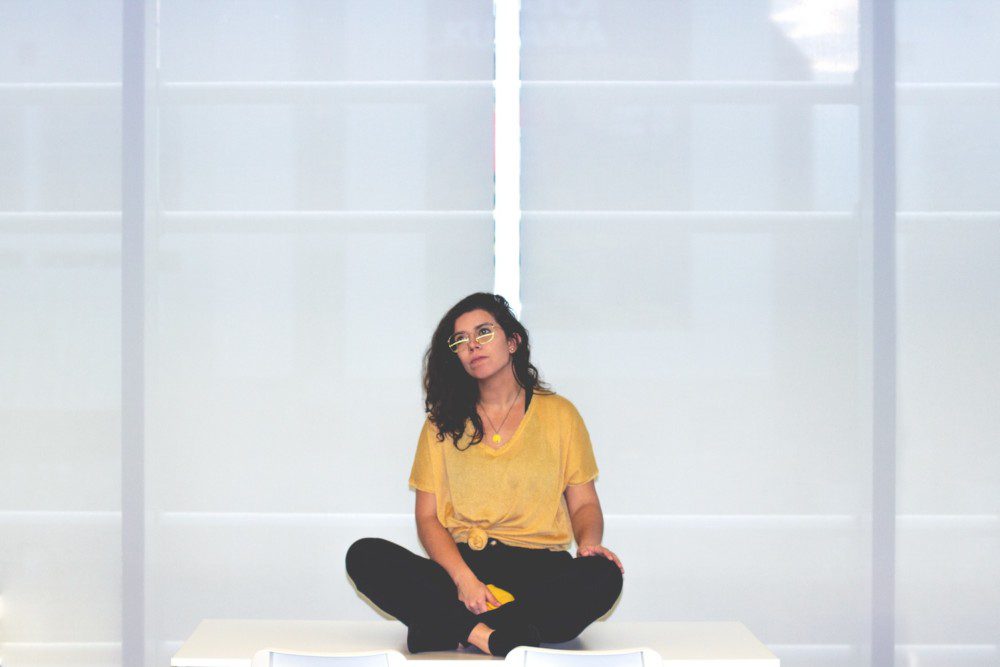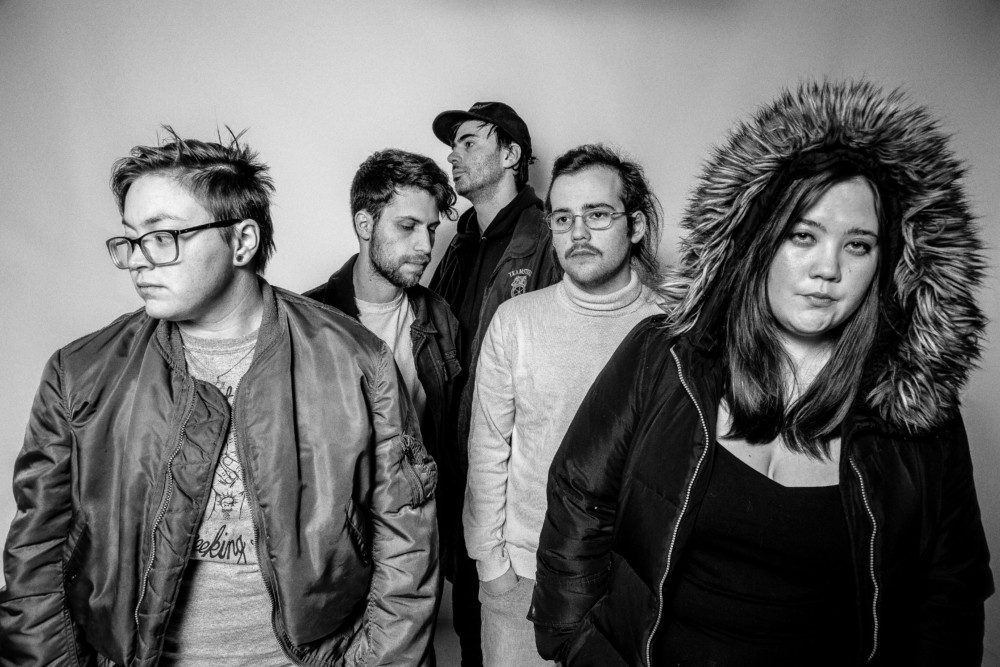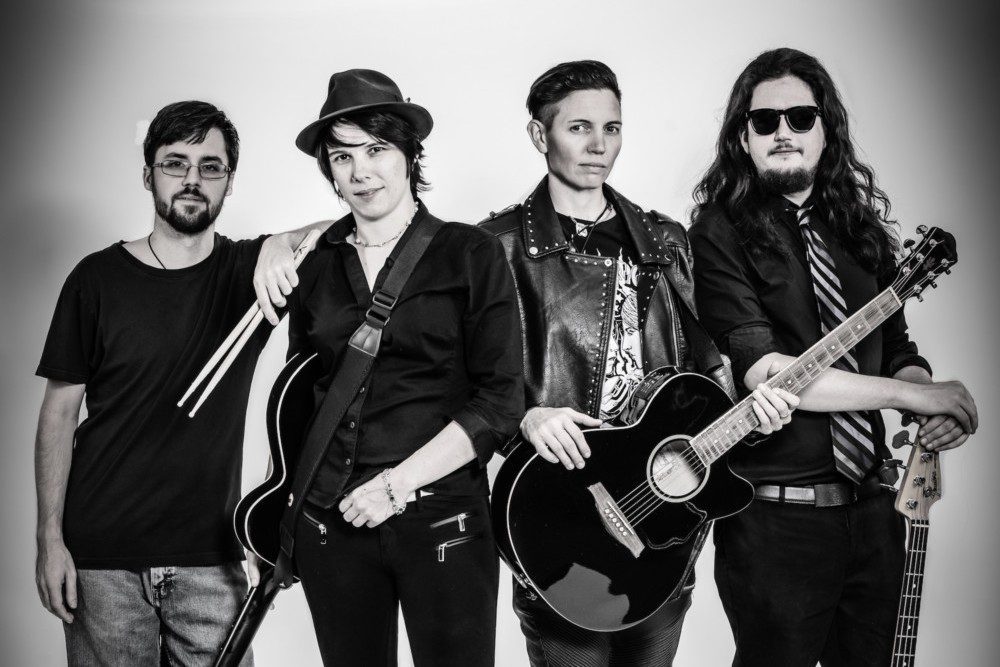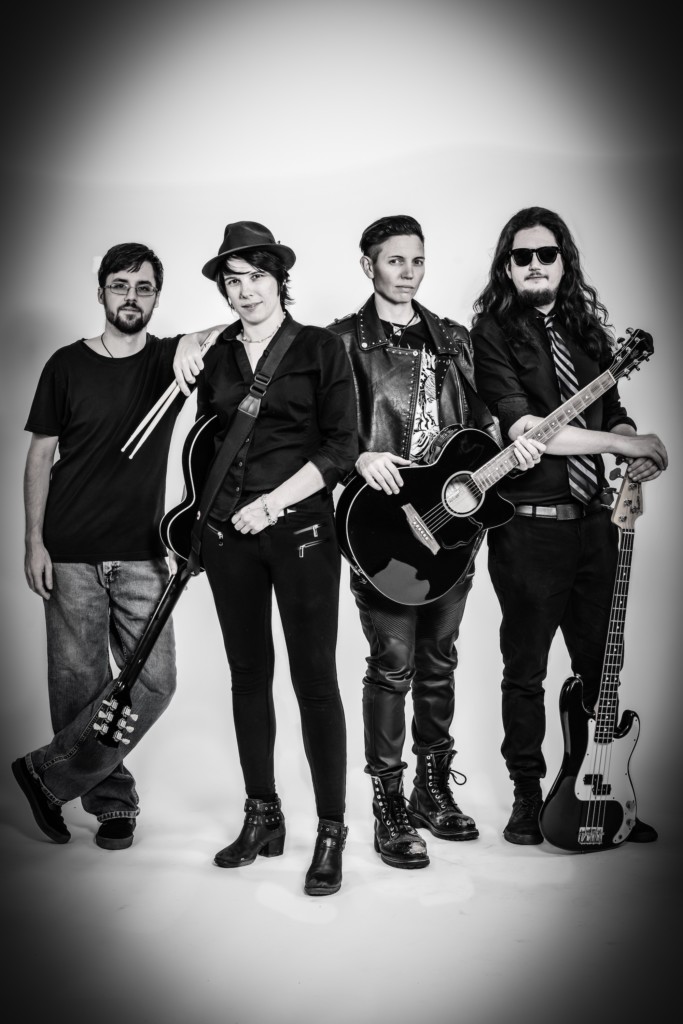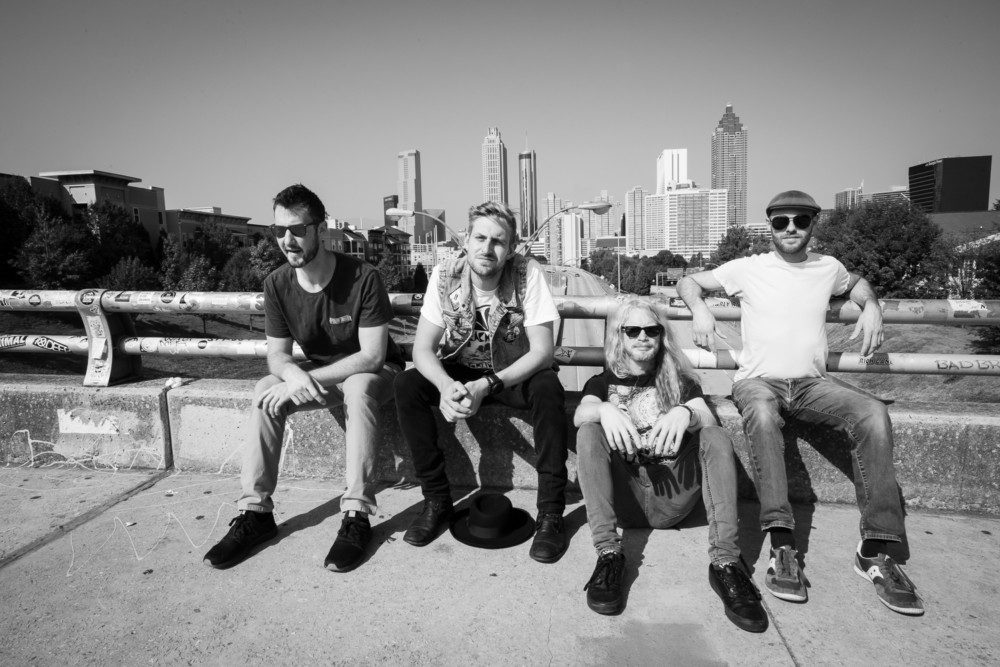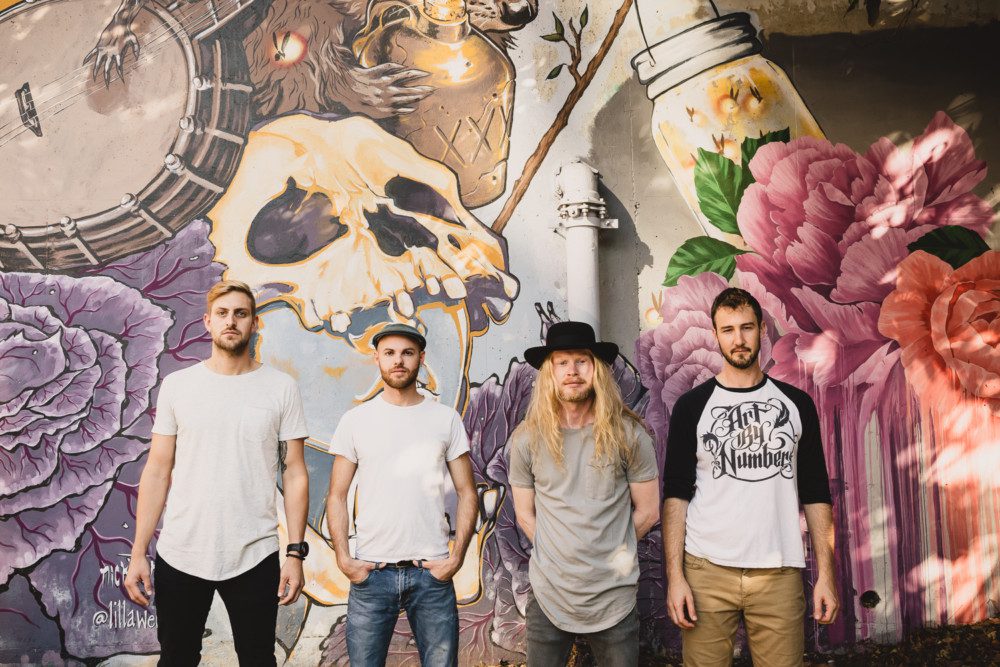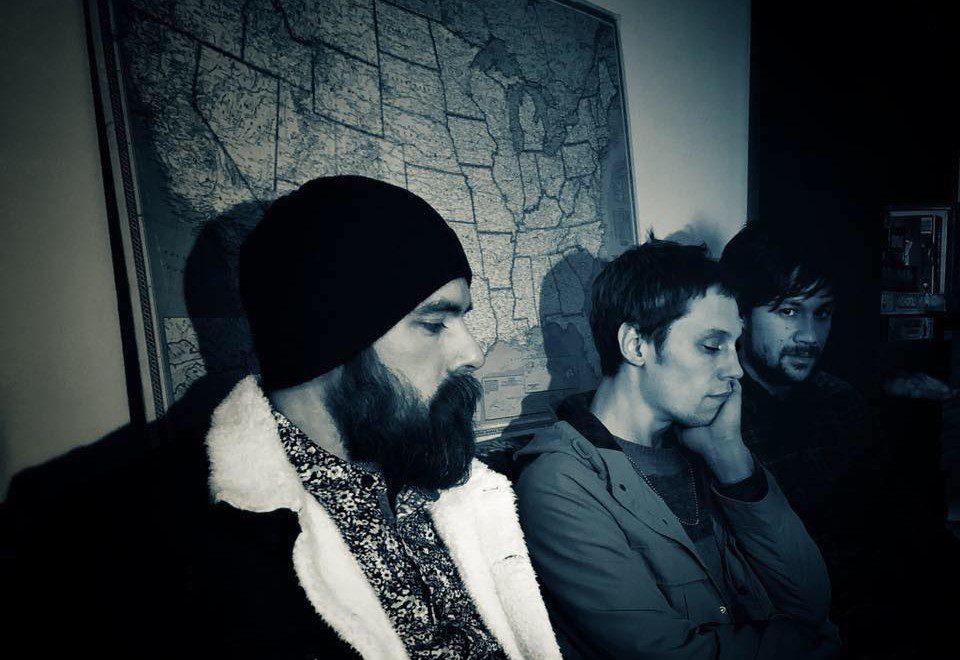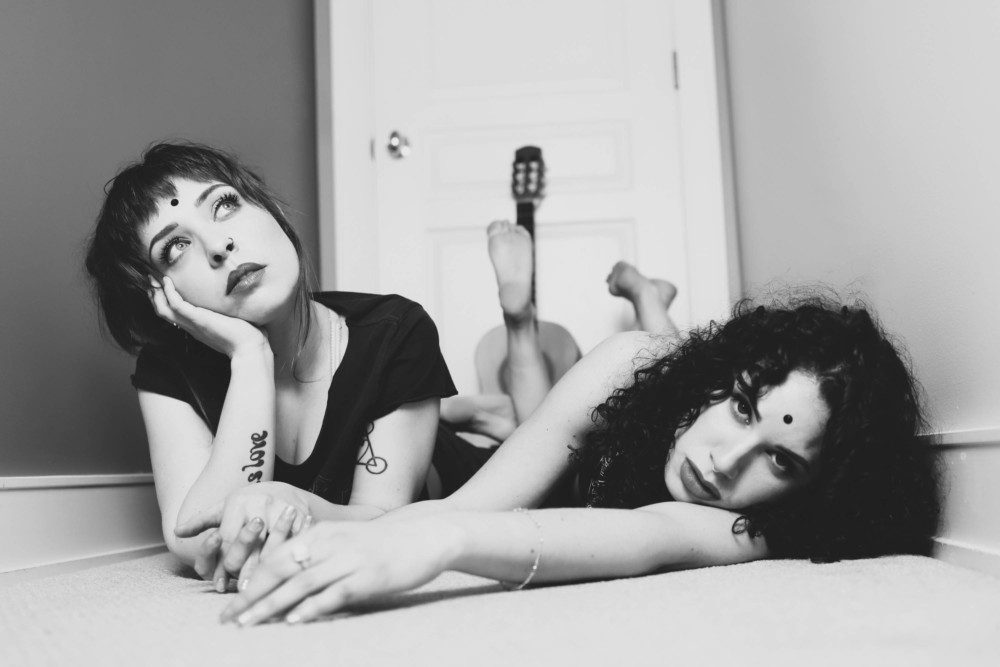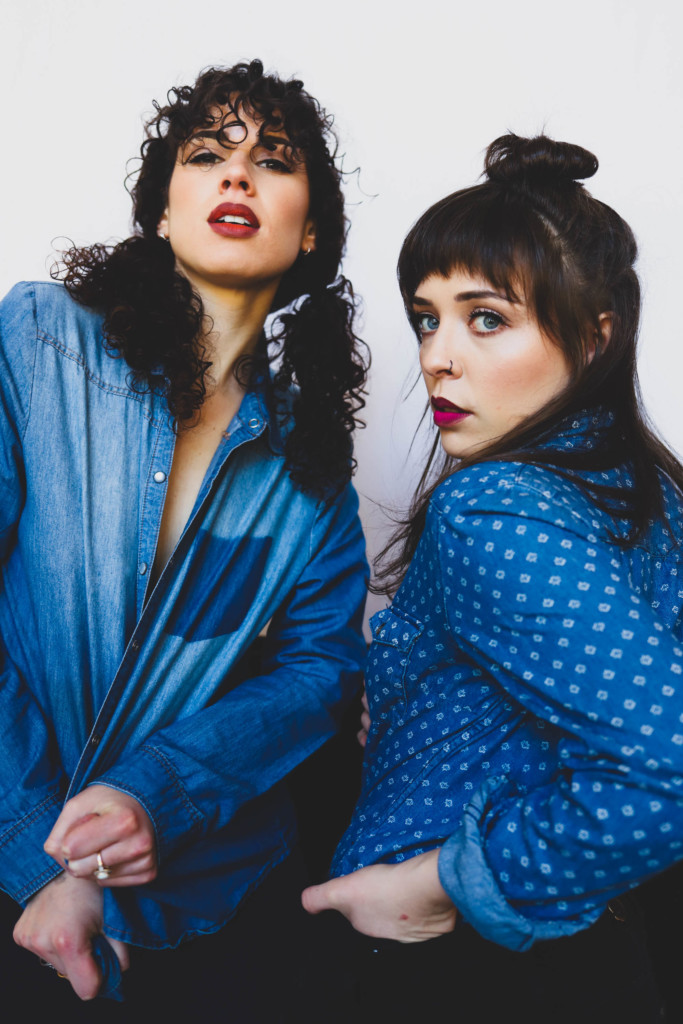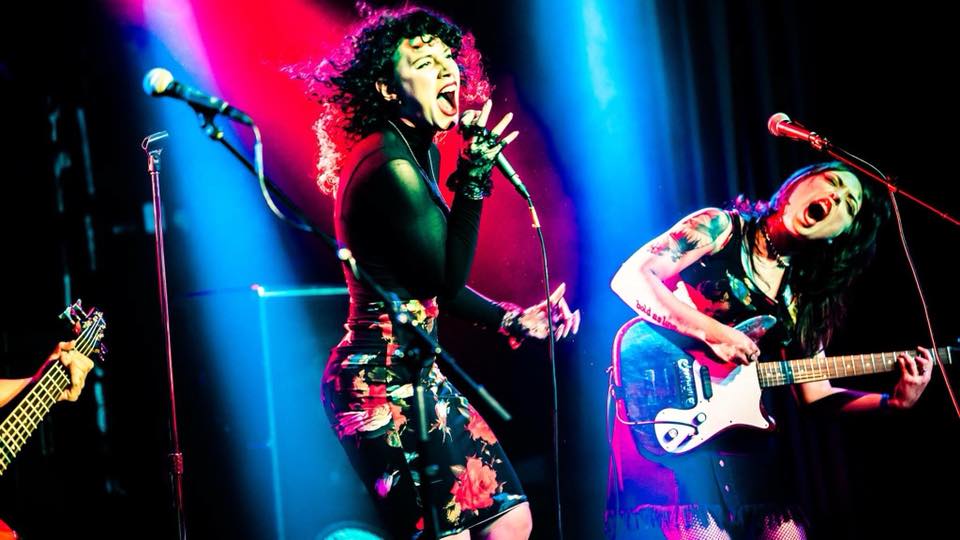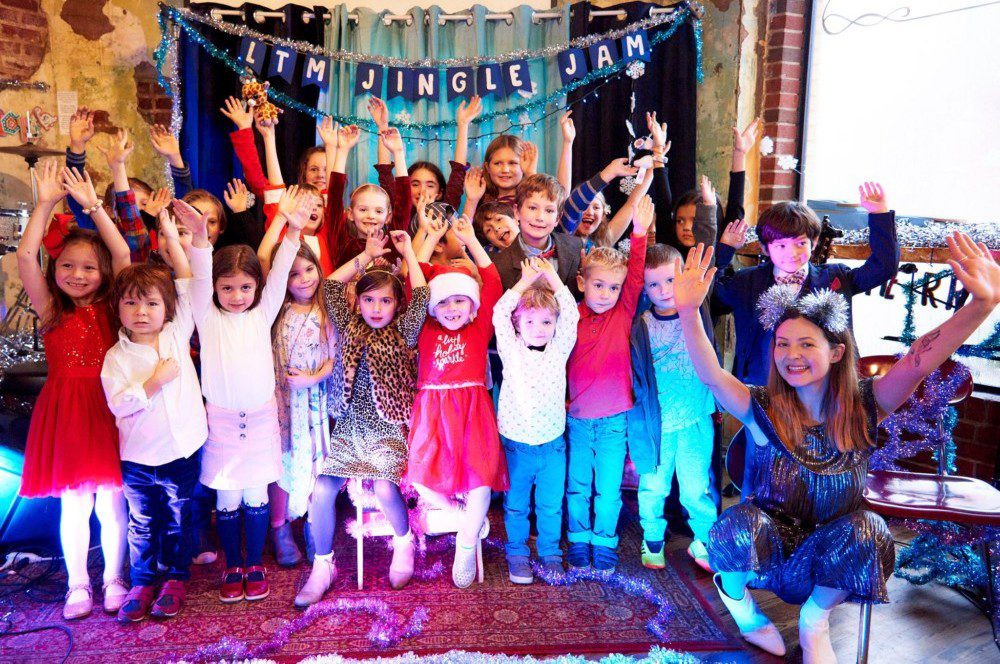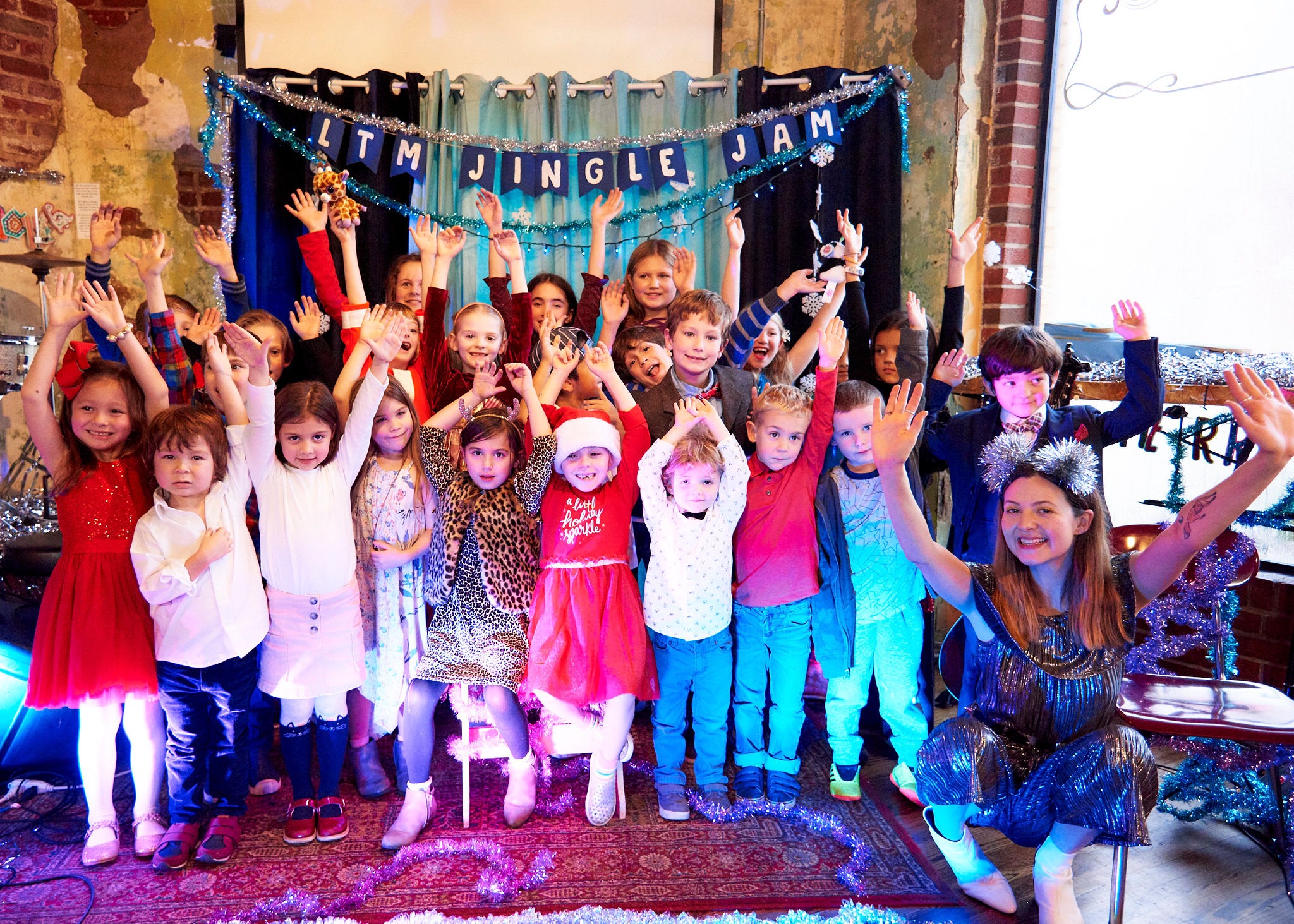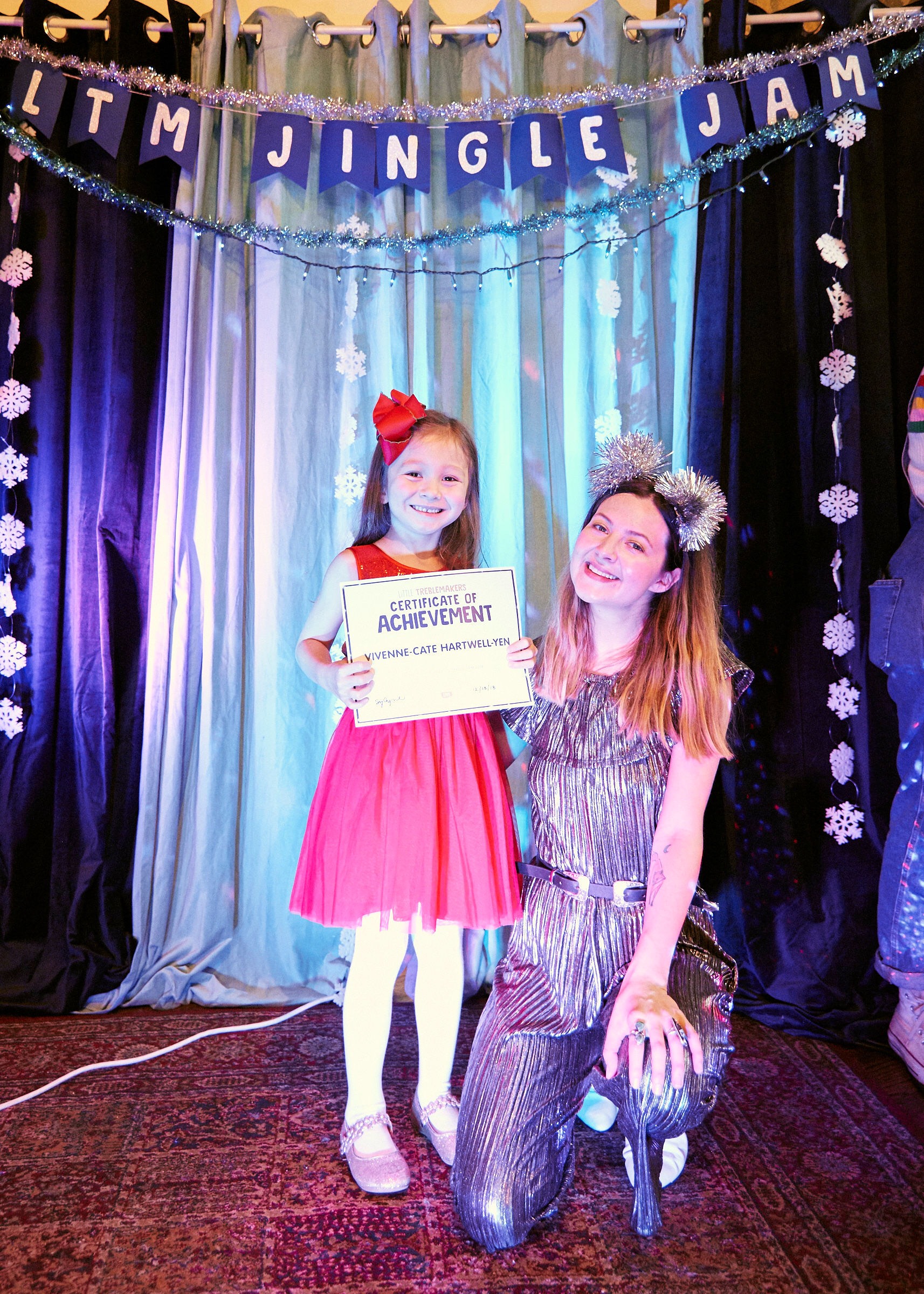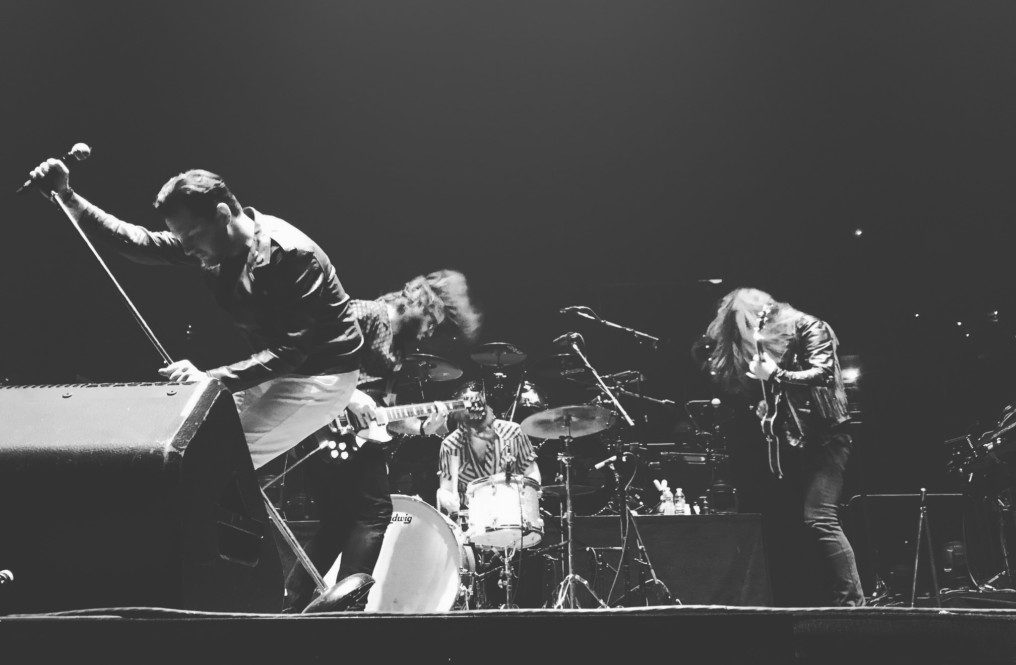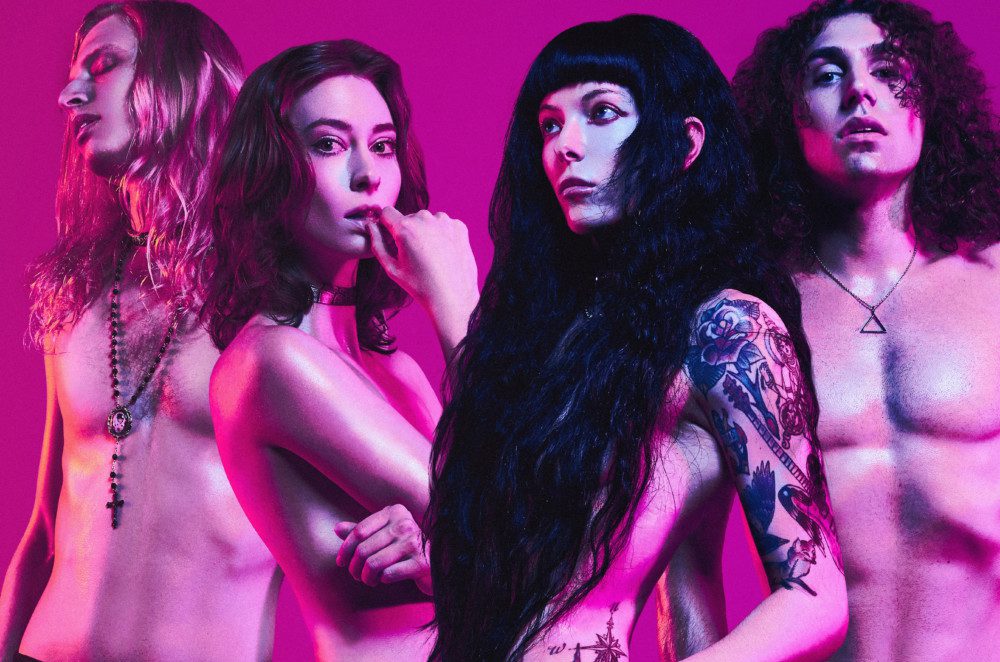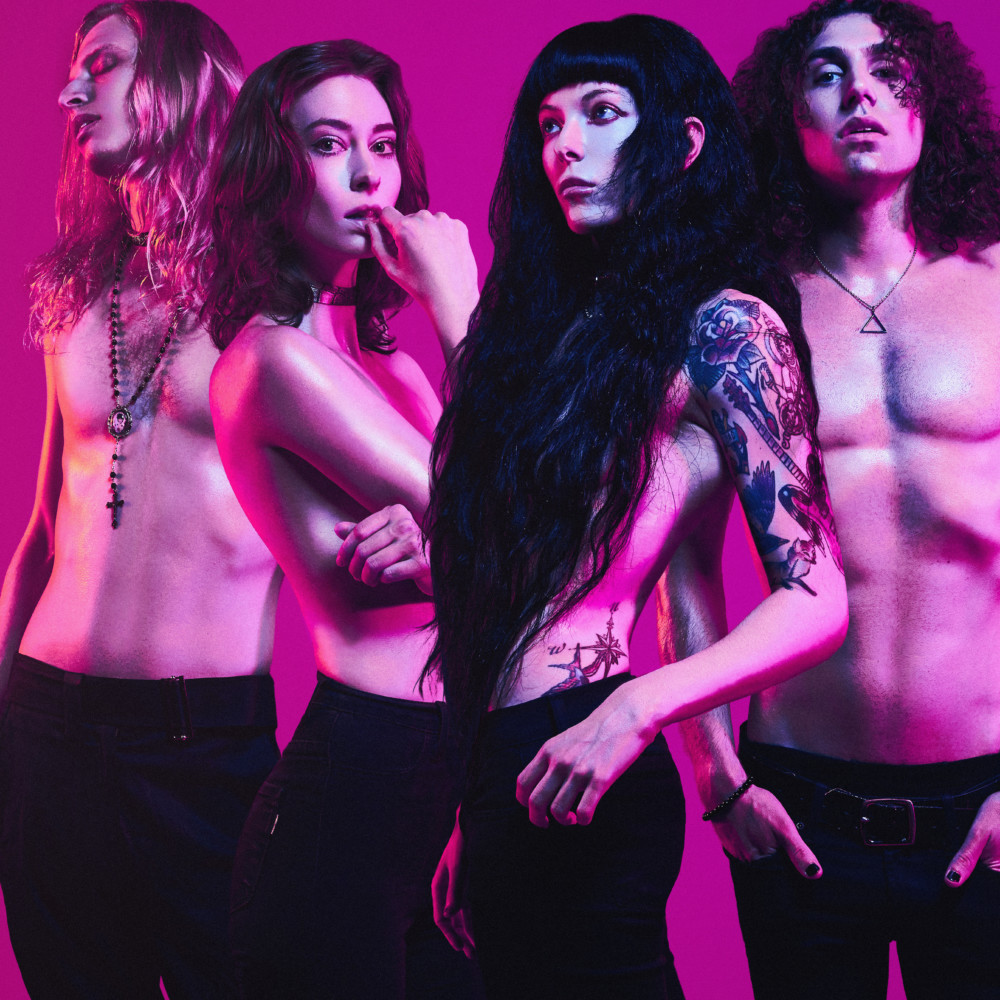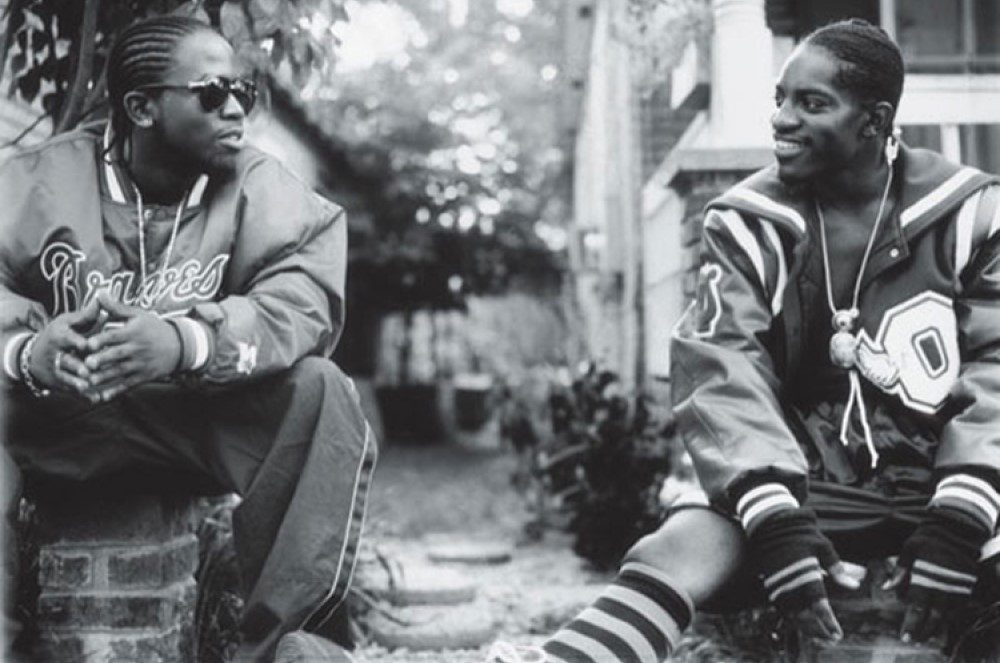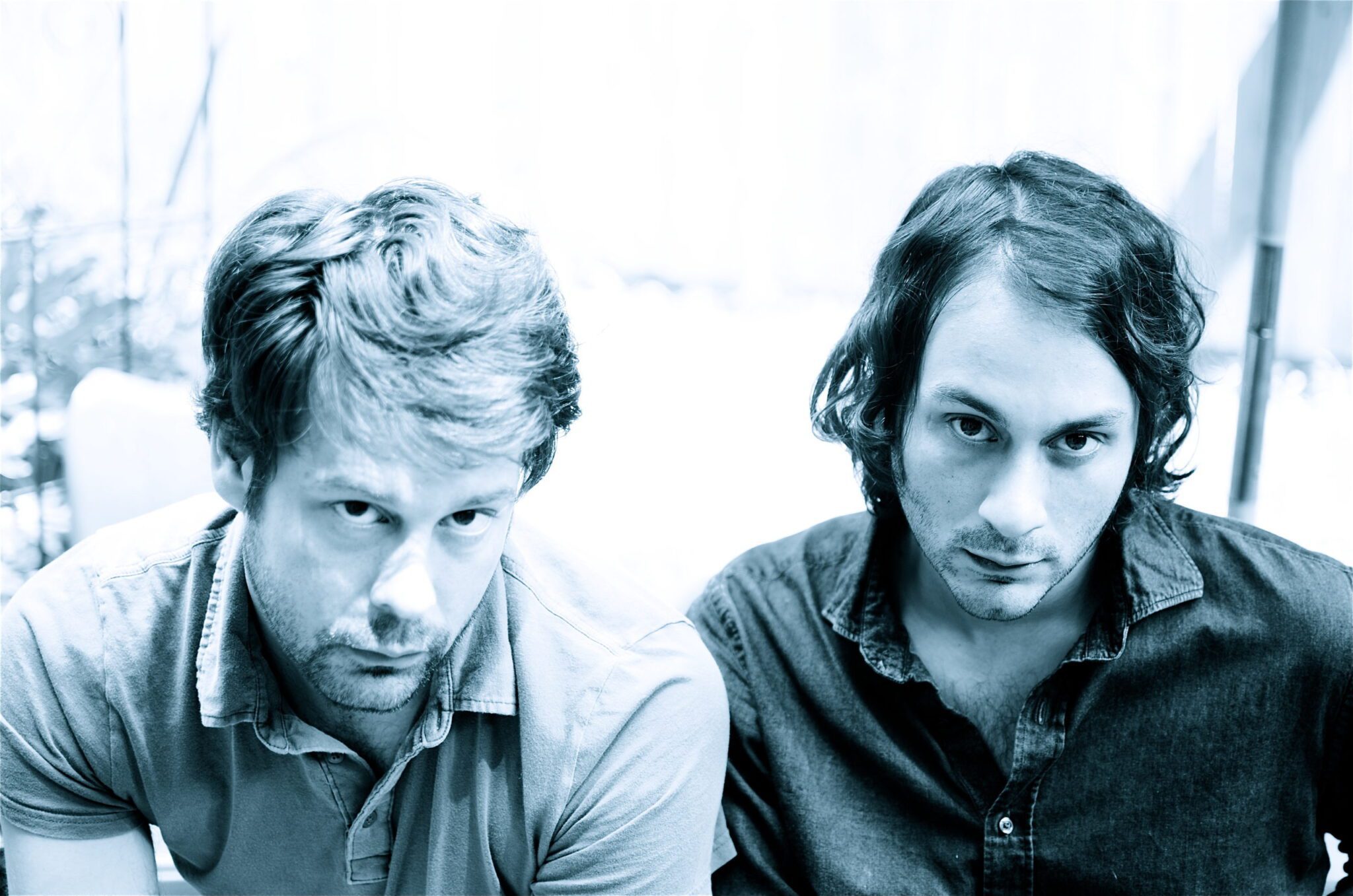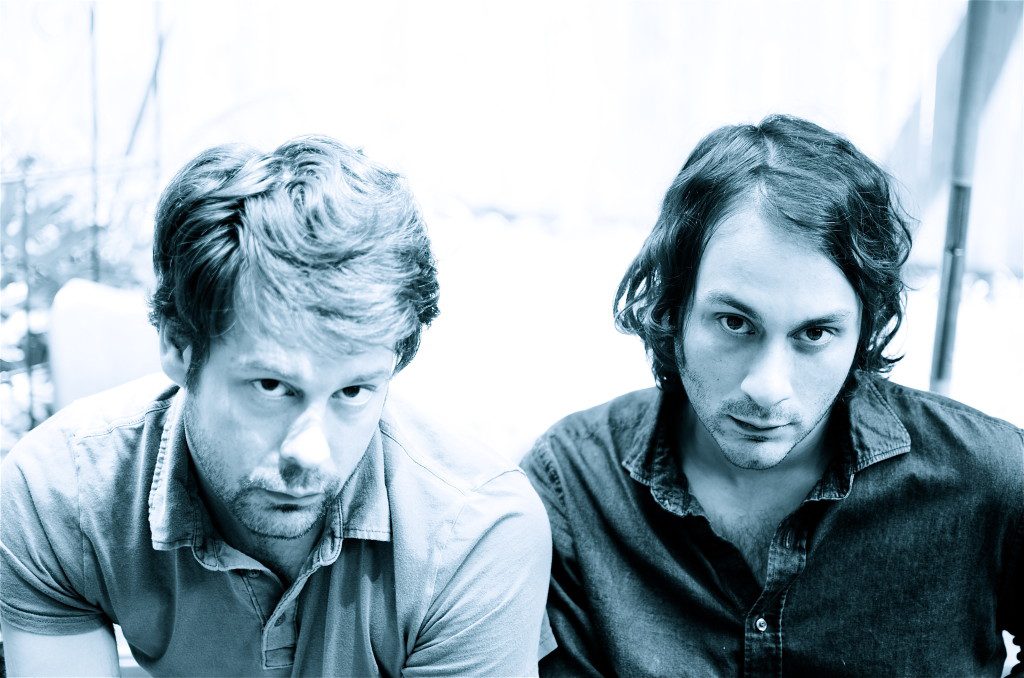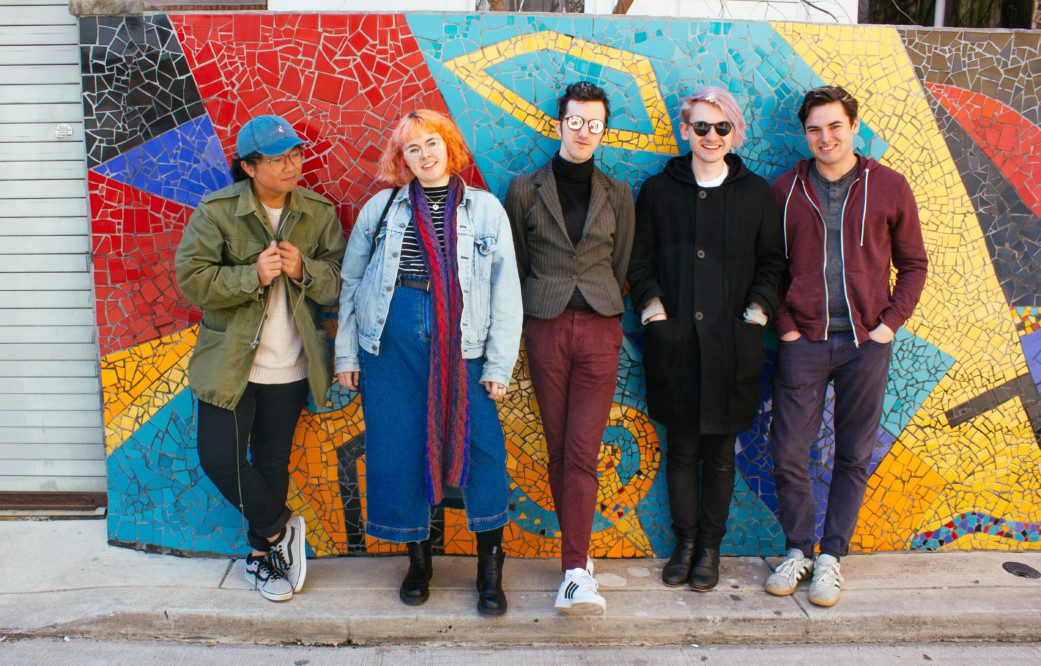
We’ve really got it all here in Atlanta: rock ‘n roll, pop, R&B, soul, and – with the resurgence of the indie scene – some of the best shoegaze-y dream pop a music lover could want. Atlanta-based, Georgia Tech-born quintet password:password is at the helm of the movement.
Fronted by lead singer Claire Lacombe and backed by Chris Mickas on guitar, Heath Murphy on synth, guitarist Jed Paz, and bassist, Merritt Treaster, the group takes DIY to the next level, writing, recording, and producing their own music, while blending the swirling, experimental sounds of My Bloody Valentine and Phoenix with classic synth-pop acts like Pet Shop Boys.
The band released their debut EP, Session Boyfriend, on Valentine’s Day. Just over four months later, they’re gearing up to put out a new single on June 28th, with a b-side that pays tribute to another local act. Check out our interview below to hear more about what they’ve been up to and how it all began.
AF: All five of you have been in bands before; how did password:password get started?
We met while we were all students at Georgia Tech. We were each a part of the Musician’s Network there, which is a student organization that connects musicians at Tech and runs a student-run venue/practice space called Under The Couch. MN has a thing called New Band Showcase every fall, and in the fall of 2017, we got together to compete. A lot of us had been in bands together before (Merritt and Chris in Yes! Hornberger!, Jed, Merritt, and Chris in Priam, and Jed and Claire in Junior Prom), but for the 2017 showcase we decided to start a new project.
AF: Which bands do you consider your greatest inspirations when writing and performing?
Shoegazey stuff like Slowdive, Cocteau Twins, and My Bloody Valentine, newer indie pop like Alvvays, Japanese Breakfast, Beach House, M83, MGMT, Phoenix, and older synth-pop like Pet Shop Boys, Eurythmics, Nena, and all that. You can hear joy division in some of Merritt’s bass playing. There are some other pulls that we’ll make for little details and stuff, but those are probably the biggest influences.
AF: How did your sound develop as you began writing and playing together?
We actually set out to start a dream pop band from the beginning. All of us have an appreciation for sonic textures and a mutual love of bands that experiment with it. When the five of us got together to start creating our own music, those mutual influences came through. Also, having a dedicated synthesizer/keys player in the band ends up pushing the tone of the music in many different directions. Combine that with constant tinkering of effects pedals, and we end up where we are now.
As far as the instrumental arrangements go, we all have an appreciation for simpler parts. Chris and Heath have jazz backgrounds, and we know a decent bit about music theory, but we try to convey that through atmospheric and interesting sounds rather than really technical pieces.
AF: What’s your creative process like? Do you usually write together, or does one of you come in with a finished idea and jam it until it feels good? Has it changed over the years, as you’ve played together?
Most of the time one of us (usually Jed) comes to practice with an idea or a written demo, usually one that consists of one or two parts and possibly a melody. We play around with it for a bit to get a feel of where the song needs to go, and then a lot of the song’s progress comes from us working on it from home. Merritt has a knack for fleshing out what would otherwise be a boring midi demo, which really helps us get a feel for the potential of the song. We’ll send each other updates or additional parts and then come together at the next practice to try them out as a band. All of the lyrics and vocal melodies come from Claire, so after listening to the rest of the band playing around with the song structure, she’ll write the rest of the song on her own. It’s overall very collaborative and everyone kind of holds their own.
AF: You’ve got some new tracks coming out soon! What can you tell us about them? What was the recording process like?
“Just Yours, Not Mine” is our first single written after our EP, Session Boyfriend. It’s the first time we’ve approached a song with a drum machine base, resulting in Jed playing guitar for this song. We’ve started to utilize backing drum tracks a lot more, but this is the first song we’ve written with it in mind since the start. Also! “Just Yours, Not Mine” includes a couple samples that come before each chorus. One is from our friend Dennis Frank when he performed his solo set at Under the Couch. The second is when Claire was testing out her digital recorder and caught Jed talking about how researching Buddhism helped his outlook on life.
“Gold Room” is a song originally by our friends in The Organ Machines, who have graciously allowed us to perform and record the song. It’s probably our favorite song by them, and we hope that we do it justice!
We recorded both of the songs on our own at Standard Electric in East Atlanta. Merritt used to intern there and is close with the owners, so they let us rent the space to ourselves when we need to record. Merritt oversees the whole session, and we each come in, hang out, and record our parts. It’s really a great space with a lot of cool equipment, and we’re lucky to be able to use it.
After all of the parts are recorded and tidied up a bit, we send the initial mixes off to our friend Cody Lavallee in Murfreesboro, Tennessee to mix and master them. Heath has known him since elementary school (they were in a band together in high school), so it’s a great set up to have him help produce the songs. He did both Session Boyfriend and the upcoming singles, although our first single [from the EP], “Thursday,” was mixed and mastered entirely by Merritt.
AF:What inspired “Just Yours, Not Mine”? What made you decide to release it as a single?
We’ve been playing “Just Yours, Not Mine” at shows recently, and people have been super receptive to it. It has a strong energy. We really think the studio version will do that justice.
JP: I had been playing around with the chord progression for the verse of “Just Yours, Not Mine” for a while before bringing it to the rest of the band, and at first I had planned for it to be a much more downtempo song. My main source of inspiration for the feeling behind the progression came from lo-fi hip-hop. I’m really glad it evolved past that though. I think what it became is a million times better than what I originally had in mind (which has been the case with all the ideas I’ve brought to the band so far).
CL: For lyrics, I liked the idea of an upbeat song with a sad story attached. It’s about feeling like you aren’t an individual once you’ve been in a relationship for so long, on top of feeling distanced from the other person in said relationship. It resolves with a repeating “don’t go,” because in the end, you are so dependent on this person it would be way worse off alone.
AF: What do you consider to be the greatest challenge when it comes to writing, recording, and performing? The greatest victory for you as a band?
Making time for the five of us to get together is always a bit of a challenge. We also record all of our own music at Standard Electric Recorders, so acting as both the artist and the recording engineer typically leaves us pretty exhausted. Performing, practicing, and writing together is really enjoyable still. We’re all really close friends, so any time that we have to work on password:password stuff is pretty great.
AF: Claire, this one is specifically for you: can you talk about your experience as a woman in the music industry? Do you ever feel like you’ve got to “prove yourself” or work harder to be taken seriously? How do you use your platform to encourage more women and girls to be active members of the music industry?
CL: There have definitely been times where I am at a show and I look at the bill and am like, “Wow, I am the only woman performing tonight.” Especially coming from Georgia Tech, which is majority male anyway, I kind of got to expect that I was always going to be a minority. The issue of women in the scene is kind of a conundrum because women will be encouraged to join the scene when they see other women in the scene, but, like, there have to be women in the scene as an example first. Also I think that women have to be more original, talented, and have a better thought-out presence to make it big or do well in music, which can be discouraging. Like, why can’t I just be as good as everyone else? Why do I feel like I have to be better to make it the same distance?
I try to use what platform I have just to encourage women to jump in with no reservations. That’s what I really like about DIY shows; they are low pressure and you can really just mess around as much as you want. You don’t have to be this amazing new concept that’s going to “make it.” On that same note, you don’t have to be amazing at your instrument to contribute and play in band if you want, so for sure, learn a new instrument and experiment as much as you are comfortable with!
AF: This column is dedicated to Atlanta bands, so let’s talk about the industry in the city! It’s expanded rapidly in the last few years, and is continuing to grow. What’s your favorite aspect of being part of the Atlanta music scene?
The best part about the expanding indie scene in Atlanta is definitely the “expanding” part. Having new venues and bands pop up every year means there is so much opportunity to move up and get into the fold. Compared to what I’ve seen in other cities, it’s pretty good about including women and LGBTQ people, too. With Claire as a frontwoman, and Heath as nonbinary, it’s very nice to have other groups around and venues that are receptive of that.
AF: What’s next for password:password?
We’re continuing to play shows around town over the summer. We’re also taking some time to focus on writing new songs. You should see some bigger releases from us somewhat soon™.
AF: Last one! Best show you’ve ever seen in Atlanta?
JP: Definitely Mitski, Japanese Breakfast, and Jay Som at the Masquerade back in 2016. Looking back, it’s a dream bill of mine, even if I didn’t realize it at the time.
HM: Oof, this was one that I arranged and password:password played at, but Couchella 2018 was so much fun. Superbody, Lunar Vacation, and Delorean Gray were major highlights. Seeing Kero Kero Bonito and Tanukichan at 529 was also a great one.
CL:Easy; Anarcticats’ album release show at Drunken Unicorn. Everyone was so hype, and they overpacked Drunken Unicorn by like 30 people. It’s really cool to see your friends so lifted up like that.
CM: Julien Baker. I saw her a few days before her most recent album came out, and the crowd was almost silent when she was performing new songs because everybody wanted to hear every word she was singing. It felt very unique and intimate.
MT: Tame Impala at the Tabernacle in 2013 for sure.
Dreaming of more? Follow password:password on Facebook and keep an eye out for more music coming soon.

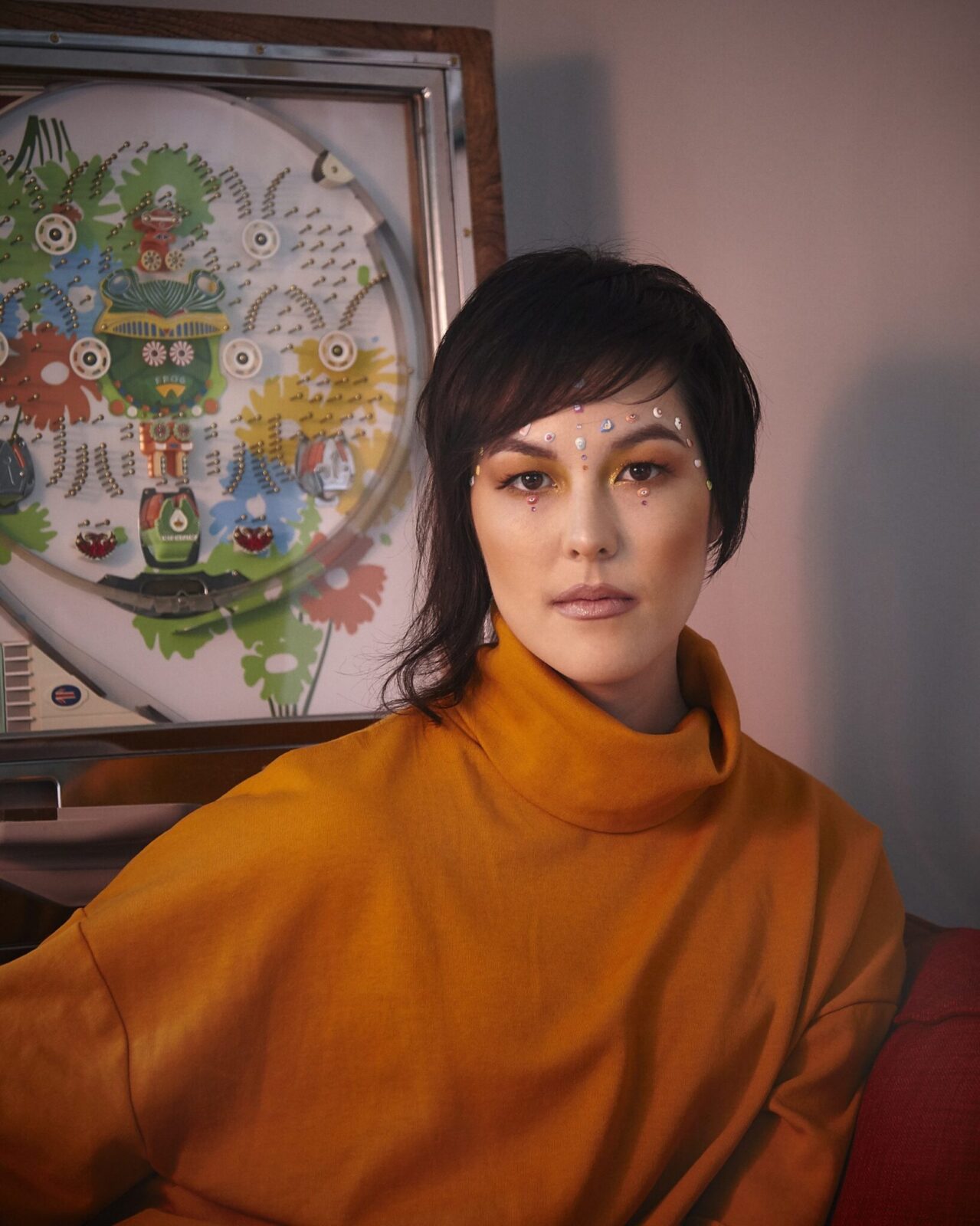
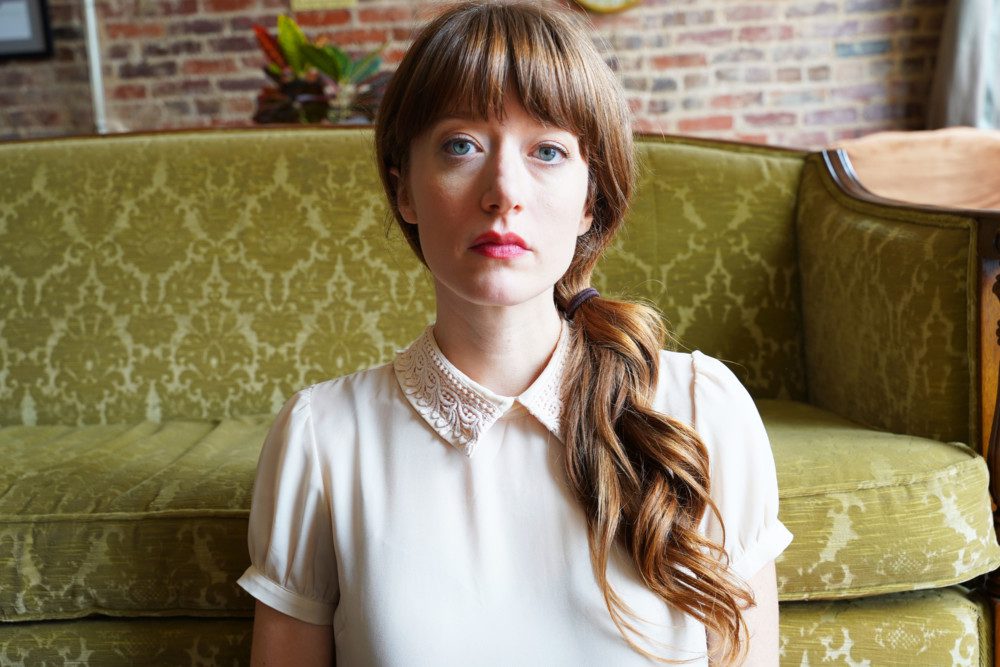
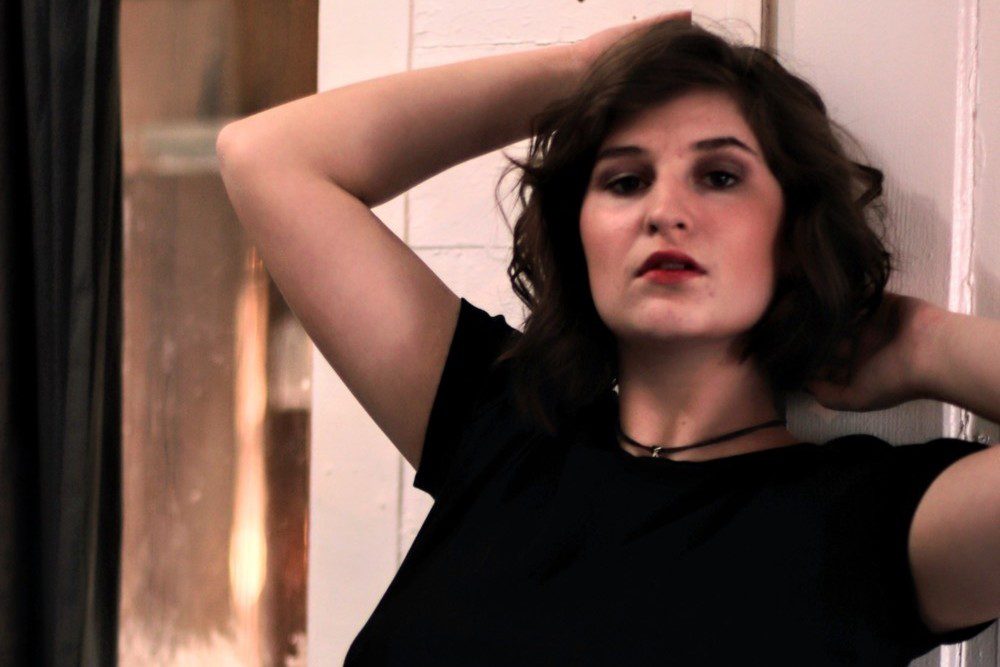
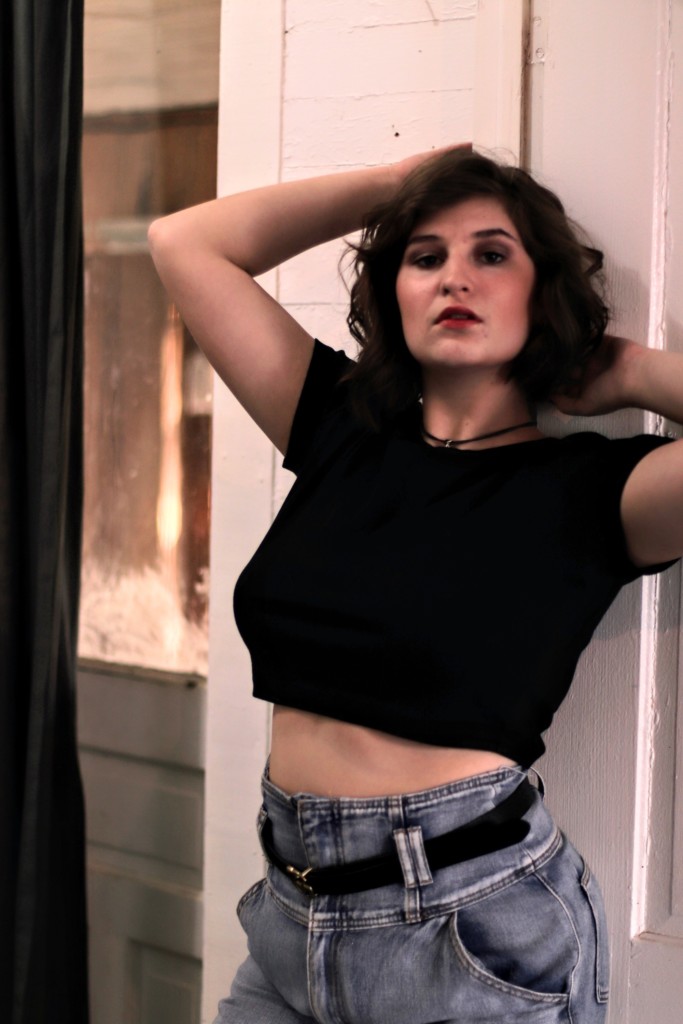
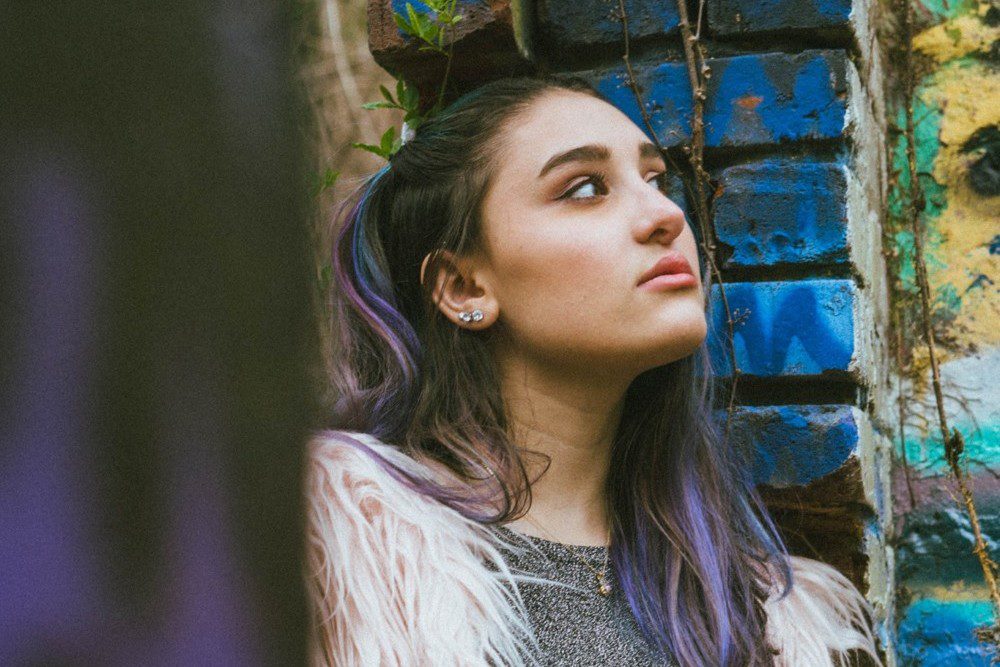
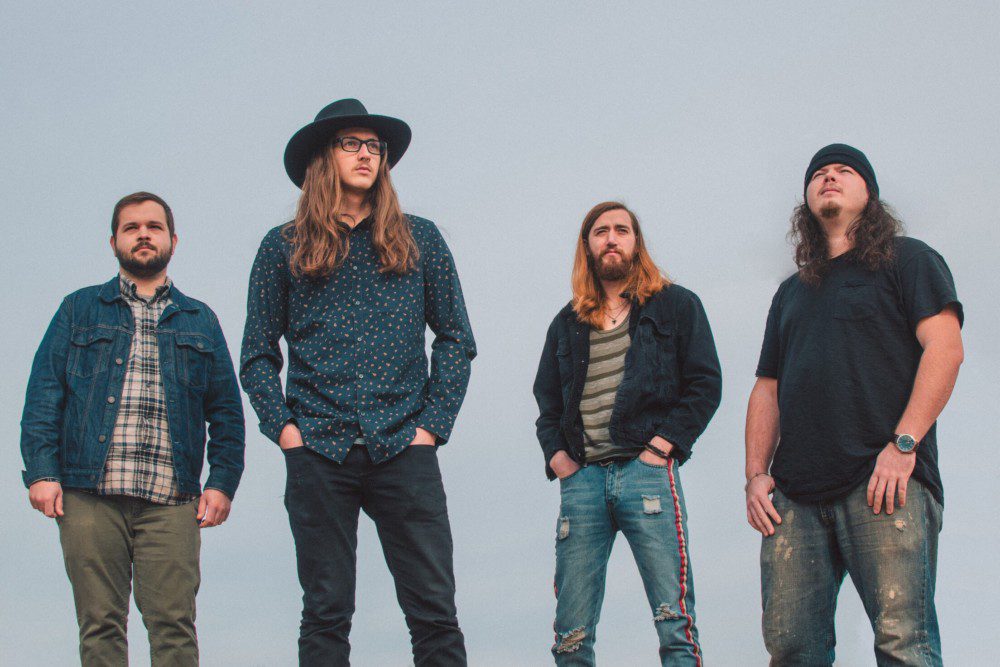
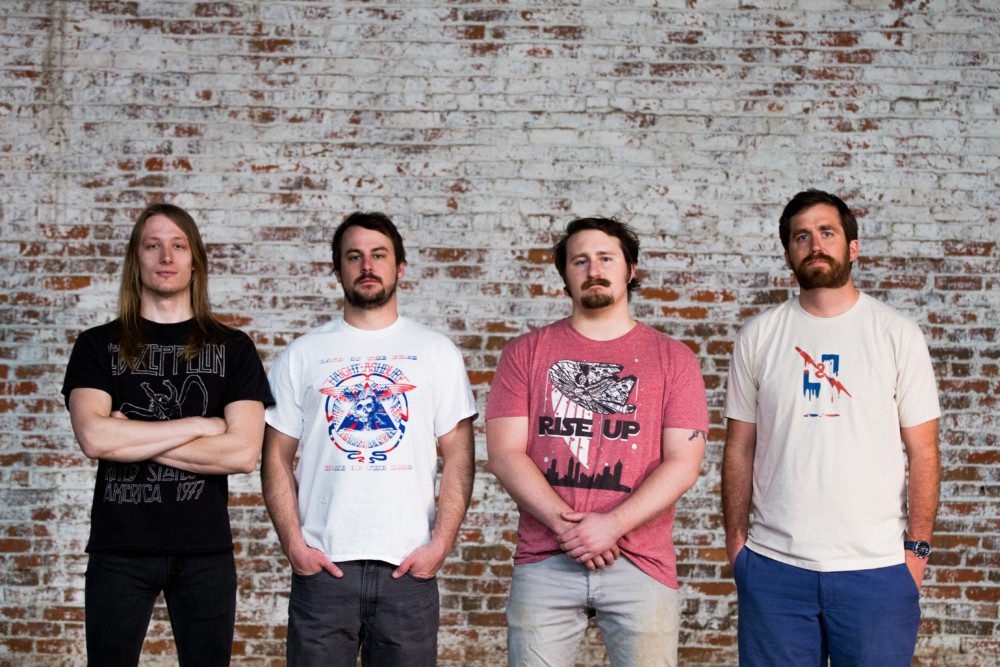
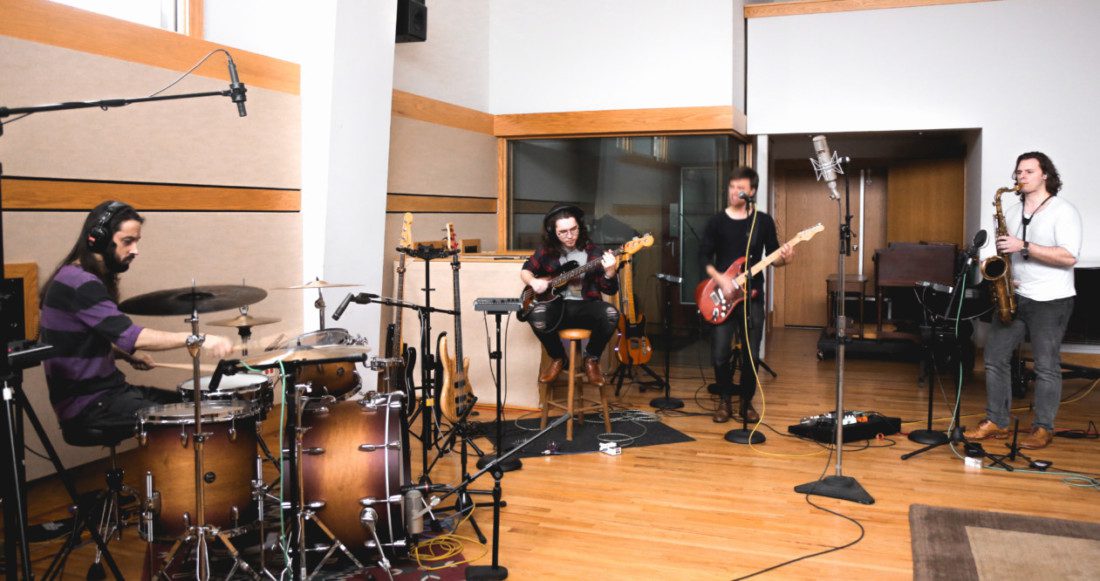
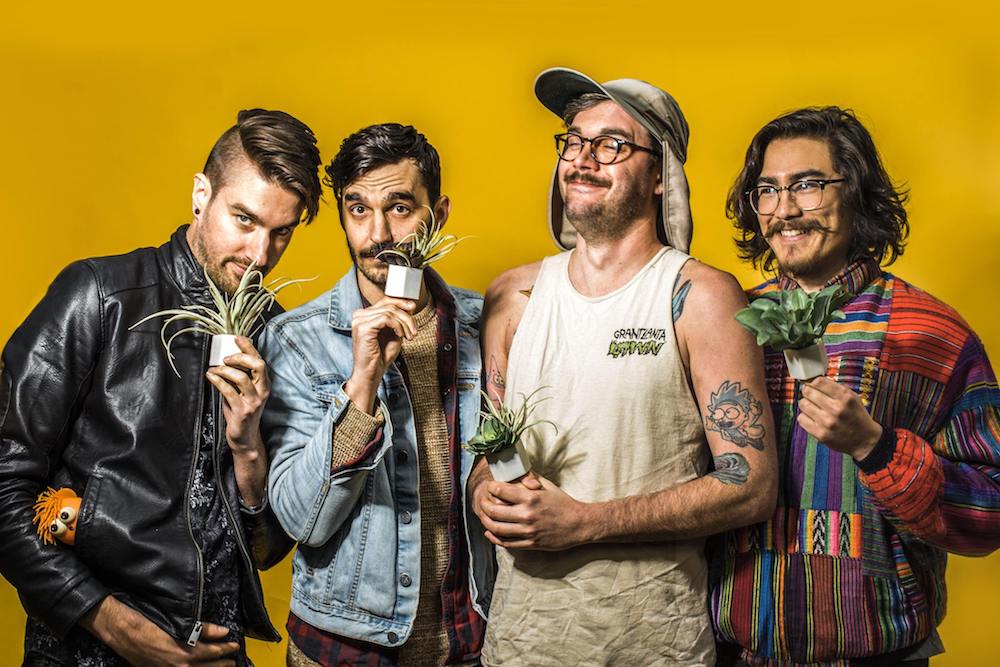
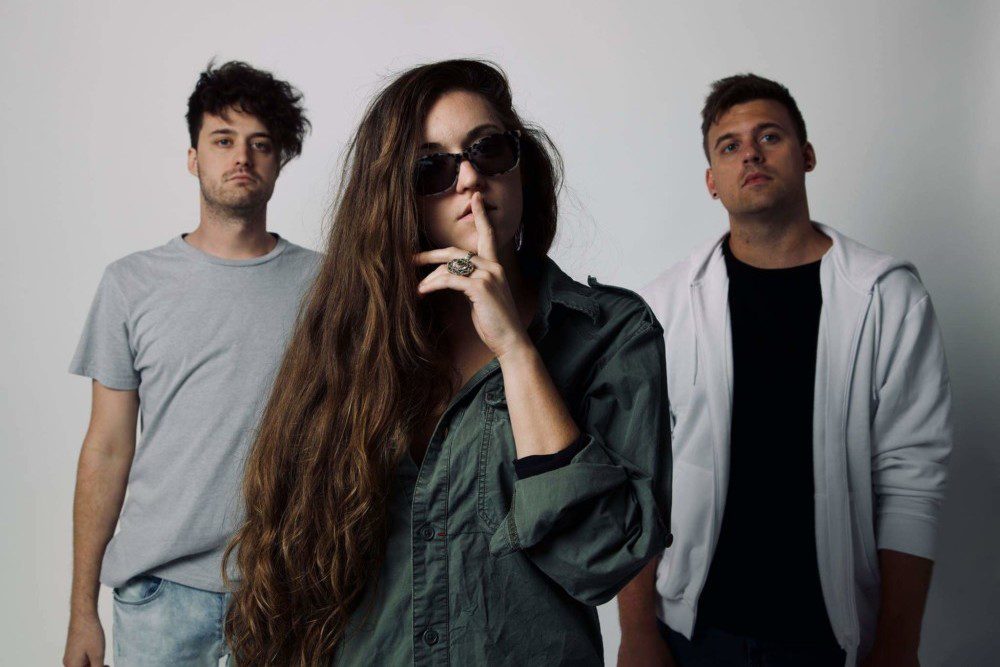
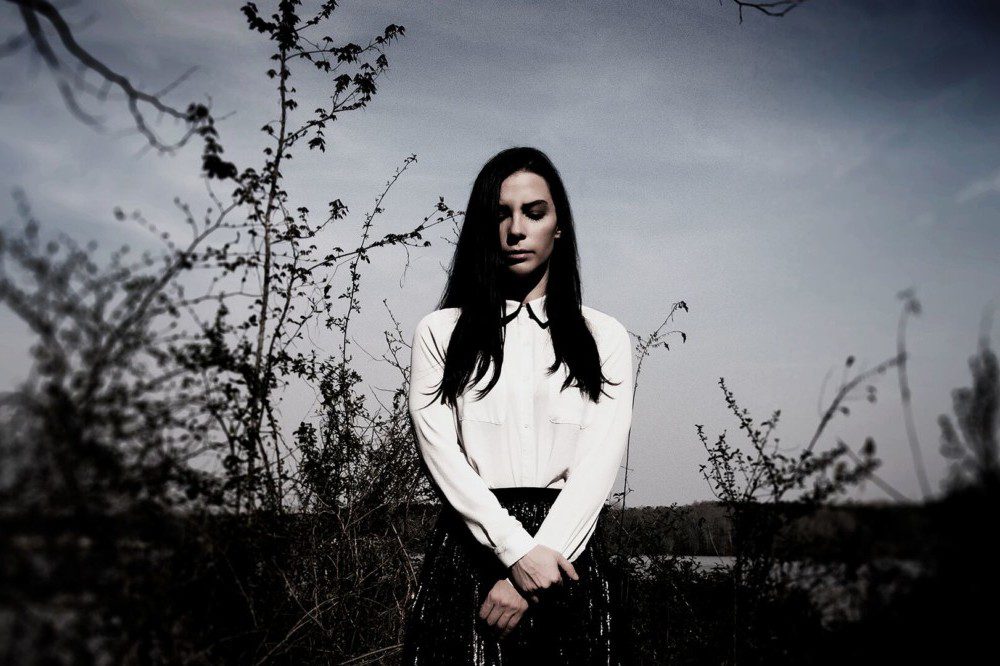
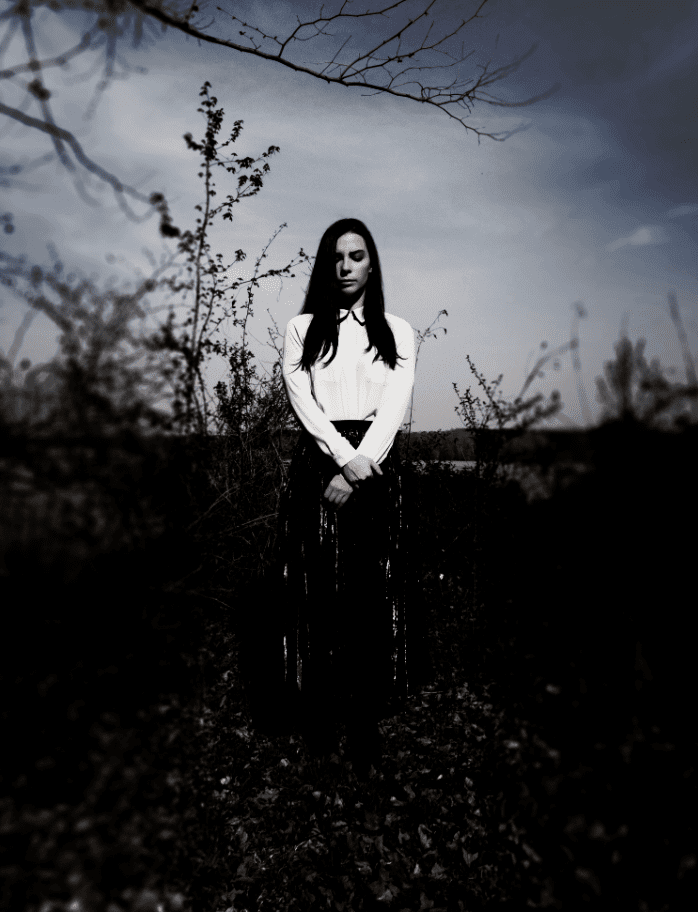
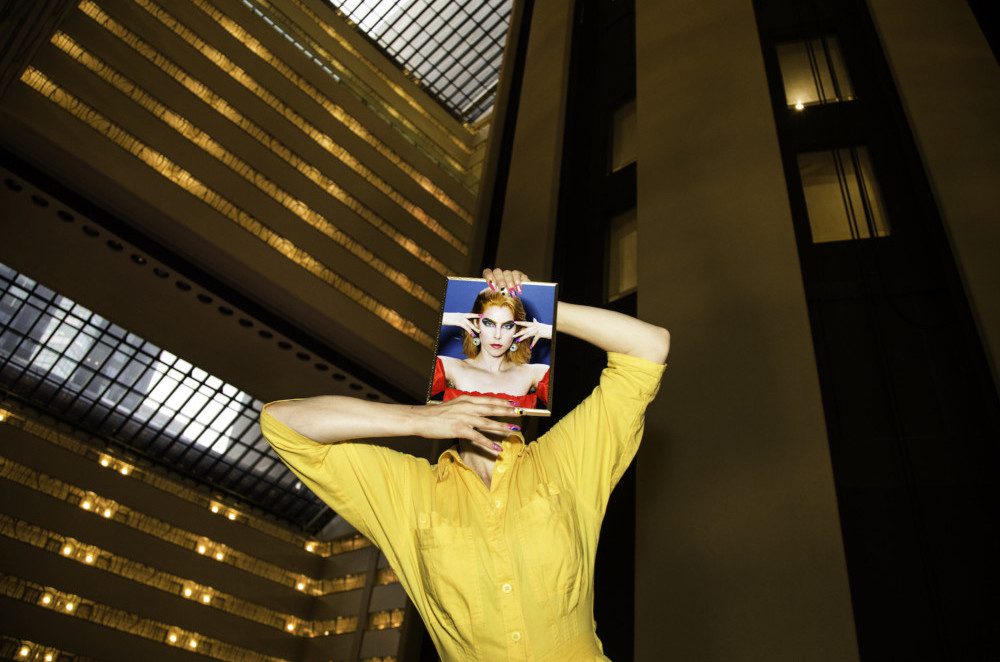
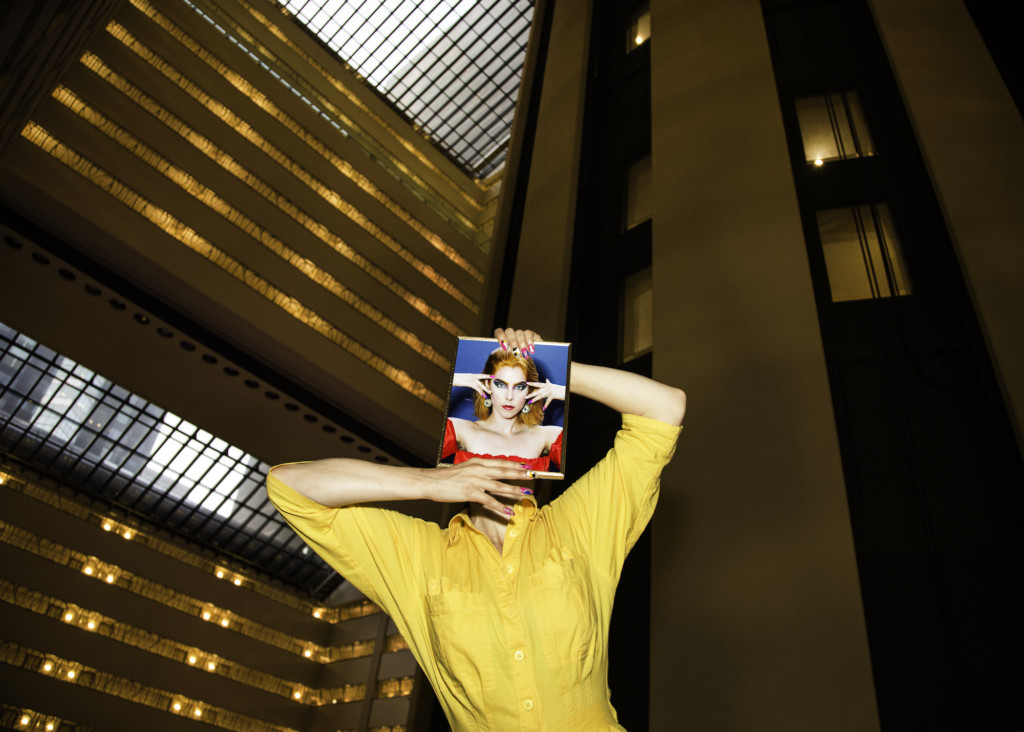
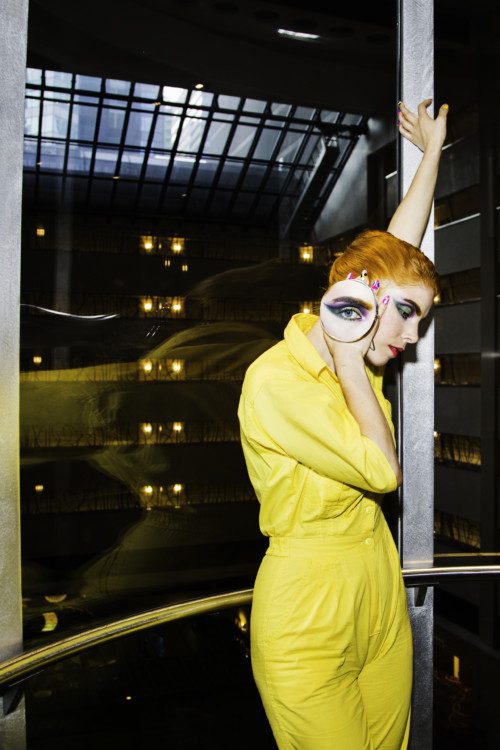 The two remaining segments of Ardis will appear in April and June, each with their own specific fragrance accompaniment. This March, Kladzyk begins a month-long residency at Red Hook artspace Pioneer Works, which will culminate in a musical version of Ardis on April 14. It will expand upon the excerpt she performed at MoMA Ps1 at the end of 2017, which featured herself and her sister Anna discovering, then destroying, a fragrant utopia before rebuilding it. “One of the narrative arcs [of the project] is me as a human, trying to open doorways to Ardis, failing and trying again, and in the process finding it in all these different places,” she says. The Pioneer Works performance, she adds, will feature “a number of other performers, there’ll be a large choir, and other musicians… I’m working with a really incredible set designer, and there’ll be wild costumes, but it will largely be the music interacting with visual signifiers of the world.”
The two remaining segments of Ardis will appear in April and June, each with their own specific fragrance accompaniment. This March, Kladzyk begins a month-long residency at Red Hook artspace Pioneer Works, which will culminate in a musical version of Ardis on April 14. It will expand upon the excerpt she performed at MoMA Ps1 at the end of 2017, which featured herself and her sister Anna discovering, then destroying, a fragrant utopia before rebuilding it. “One of the narrative arcs [of the project] is me as a human, trying to open doorways to Ardis, failing and trying again, and in the process finding it in all these different places,” she says. The Pioneer Works performance, she adds, will feature “a number of other performers, there’ll be a large choir, and other musicians… I’m working with a really incredible set designer, and there’ll be wild costumes, but it will largely be the music interacting with visual signifiers of the world.”